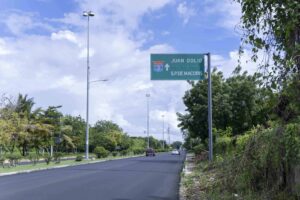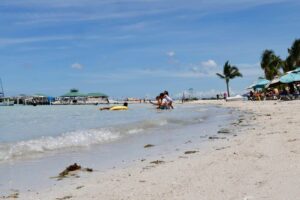Cubans, Venezuelans, Colombians and Russians lead the list of naturalizations granted in the Dominican Republic during the first half of 2024, according to official data from the Ministry of the Interior and Police. These countries also stood out in the period from 2020 to 2023.
Between January and March 2024, a total of 116 new citizenships were registered, distributed among 22 Venezuelans, 13 Colombians, 11 Cubans and 10 Russians. In the second quarter, the number of naturalizations increased to 131, with 25 Cubans, 22 Venezuelans, 14 Colombians and 11 Russians obtaining citizenship.
In addition to these groups, citizens of other nationalities, such as Italians, Spaniards, Americans, Haitians and Ukrainians, among others, also regulated their status.
According to the document “Memories 2020-2024”, 29 naturalizations were granted in 2020; 151 in 2021; 303 in 2022, and 278 last year 2023. As of June this year, the total number of naturalizations reached 1,008.
This increase in naturalization figures may be related to the current conditions in these countries. Venezuela continues to face a serious economic and political crisis, characterized by high inflation and shortages of essential goods, which drives many of its citizens to seek better opportunities abroad.
Despite advances in security and economic development, Colombia continues to face significant challenges in rural areas and an economy that is not always able to absorb its entire working population.
Cuba remains under a restrictive political regime with limited economic and social opportunities, leading many Cubans to emigrate in search of greater freedom and better living conditions. Russia, although a world power, has experienced internal political tensions and international economic sanctions that have deteriorated the quality of life of many of its citizens.
In the Dominican Republic, most naturalizations are carried out through the marriage process or through the ordinary procedure. Others are children of naturalized parents and some are privileged.
Naturalized citizens are individuals who, having been born in another country, acquired the nationality of a new country through a legal process of naturalization. This process generally involves fulfilling certain requirements established by the legislation of the receiving country, such as continuous residence for a certain period, mastery of the official language, knowledge of the country’s history and institutions, and demonstration of good moral character.
In the context of the Dominican Republic, naturalized persons have met the criteria established by the Dominican government and have gone through the administrative process necessary to obtain Dominican nationality. This grants them the same rights and duties as any citizen born in the country, allowing them to fully participate in the civic, social and economic life of the nation.
Regardless of the type of naturalization applied for by the foreigner, he/she must prove his/her legal stay in the Dominican Republic through the residence card issued by the General Directorate of Migration.
The only exception to the above rule is privileged nationality, which can only be granted by the President of the Republic to foreigners who have made significant contributions to the country or to humanity. This type of nationality does not require compliance with documentary requirements or permanence in the national territory.
Residencies issued to Venezuelans 2020-2024
In the case of Venezuelans, the Dominican authorities have granted permits and residences to a total of 57,338 people from January 2020 to July 25, 2024.
In 2020, the General Directorate of Migration issued a total of 3,831 residencies and permits to Venezuelans. In 2021, 5,570 residencies were granted; in 2022, the number increased to 17,261; in 2023, to 20,685; and to date this year, 9,991 residencies have been issued.


